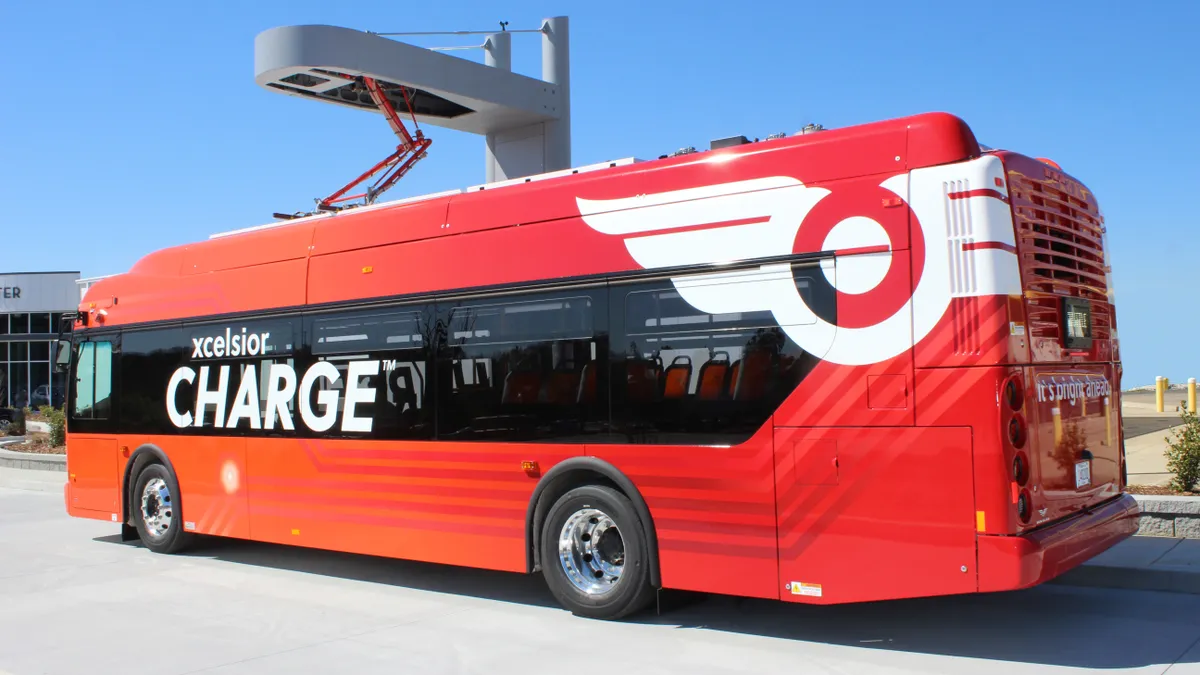Dive Brief:
- The Connecticut Department of Transportation (CTDOT) recently received a $2 million grant from the Federal Transit Administration (FTA) to launch the first automated technology program for full-sized transit buses in the country.
- The "Integrated Mobility Innovation" grant will aid development of automated technology to be used on CTtransit's "CTfastrak," a 9.4-mile rapid transit bus corridor in central Connecticut. The automated technologies will include steering, docking at station platforms and platooning capabilities.
- CTDOT is partnering with autonomous tech provider Robotic Research LLC, bus manufacturer New Flyer of America and the Center for Transportation and Environment to launch the program, MassTransit reports.
Dive Insight:
FTA awarded CTDOT $1.93 million to purchase three 40-foot battery electric heavy-duty transit buses for the transit corridor, in addition to 12 battery electric buses "already on order." The three additional buses are expected for delivery by 2021.
The automated technology will undergo extensive initial testing via an off-road test facility, followed by running on the "CTfastrak" without any passengers onboard. The tech will only be operated on a separated guideway, with a driver ready to take the wheel if needed. Meanwhile, an operator will manually drive the buses on Hartford, CT’s mixed traffic roadways, with precision station docking to occur at low speeds.
"The project is focused on the successful demonstration of automated technology on public roads, collection of relevant data to inform future policymaking, and advancement of Advanced Driving Assist System (ADAS) technology for enhanced safety" according to a New Flyer announcement.
The news from CTDOT is significant for transit agencies as much autonomous technology research to date has focused on smaller fleets or ride-hailing services. One of those smaller fleets includes Smart Columbus’ free self-driving shuttle service, which is said to be the country’s first self-driving shuttle in a residential area. The service is available to residents in a Columbus, OH opportunity zone, connecting to the Central Ohio Transit Authority’s CMAX Line and other facilities that offer housing, childcare and senior care.
Mobility companies like Uber have also been hard at work manually collecting data to support the company’s self-driving software in cities like Washington, DC. And while the number of initiatives to deliver autonomous transportation services to city residents are growing, the efforts to regulate such programs have been met with criticism.
Experts have warned that federal AV policies share parallels to those policies that regulated the Boeing 737 MAX aircraft, which was grounded after a number of high-profile crashes. The aircraft and current federal AV regulations rely on a self-assessment system for federal review, which critics have said is not enough to maintain safety standards, while federal officials have said the safety standards outlined in AV 4.0 are sufficient.












